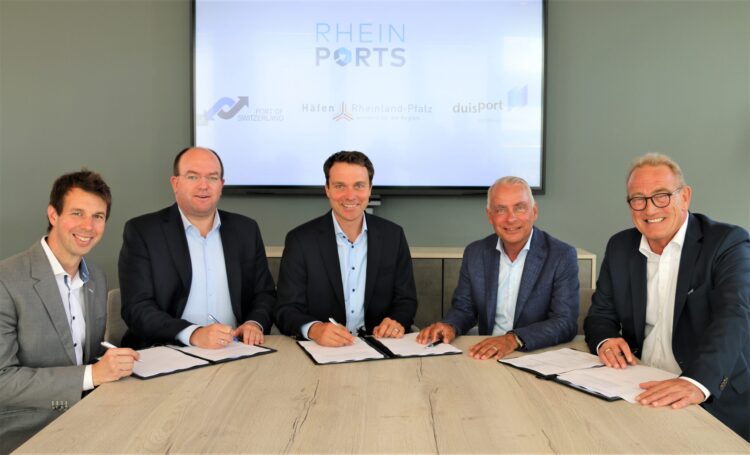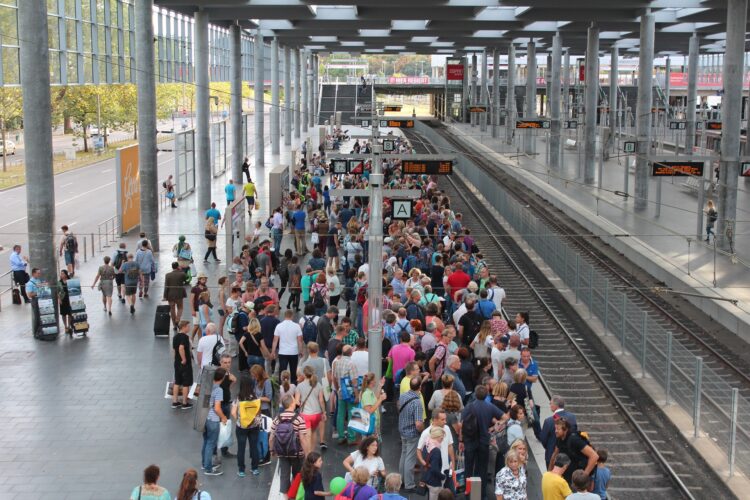Rhine-Alpine News
16.11.2022
New Users for the Enhanced RiverPorts Planning and Information System (RPIS)

Photo: Signing of the RPIS user agreement on 16 September 2022© duisport
duisport, the Swiss RhinePorts and the port of Ludwigshafen will in future use the enhanced RiverPorts Planning and Information System (RPIS) from RheinPorts GmbH. The first comprehensive port communication system connects and digitizes inland shipping with the associated port industry. Other ports and stakeholders are also invited to use the RPIS. Developed by RheinPorts, the RPIS is the world’s first digital traffic management platform for freight traffic by inland waterway vessel in the hinterland. To put it simply, the system is used to exchange the necessary information between all relevant stakeholders – such as shipping companies, terminals or ports – in international supply chains in order to provide the best possible support for the physical transport of goods and, in particular, handling in logistics hubs. The RPIS, which has been in use on the Upper Rhine since 2017, was adapted to the current needs of the port industry in close cooperation with stakeholders and long-standing partners, such as the port of Ludwigshafen, and is now available in a new version. The further developed RPIS with its additional modules such as bulk goods handling, a port monitor or a customs module is ready for use. The system is already being used by many companies along the Upper Rhine. In the future, the platform will be gradually expanded to include applications for other goods segments and modes of transport, such as rail. The aim is to expand the platform as a standard on the Rhine and in the European hinterland. The RPIS serves as an intelligent service platform (“Smart Port and Logistics Service Platform”) to integrate the flow of goods and supply chains.
Germany to introduce €49 ticket for public transport

Image by Peggy and Marco Lachmann-Anke on Pixabay
German transport ministers agreed on a €49 monthly price tag for local public transport throughout Germany with financing issues unresolved, operators warn that service may be disrupted as a result. This summer, Germany made headlines by drastically reducing the price of its local public transport to €9 per month as part of a package of measures to ease inflation. While the scheme saw an increase in the use of buses and trains, it also caused overcrowding. Now, transport ministers of the 16 German states and the federal level have agreed on a successor to the experimental €9 ticket. In the future, a similar ticket will cost €49 per month. The ticket will be introduced “as soon as possible”, the agreement said, likely on 1 January 2023. As with the €9 ticket, the new ticket will be valid for all local and regional trains and buses.
